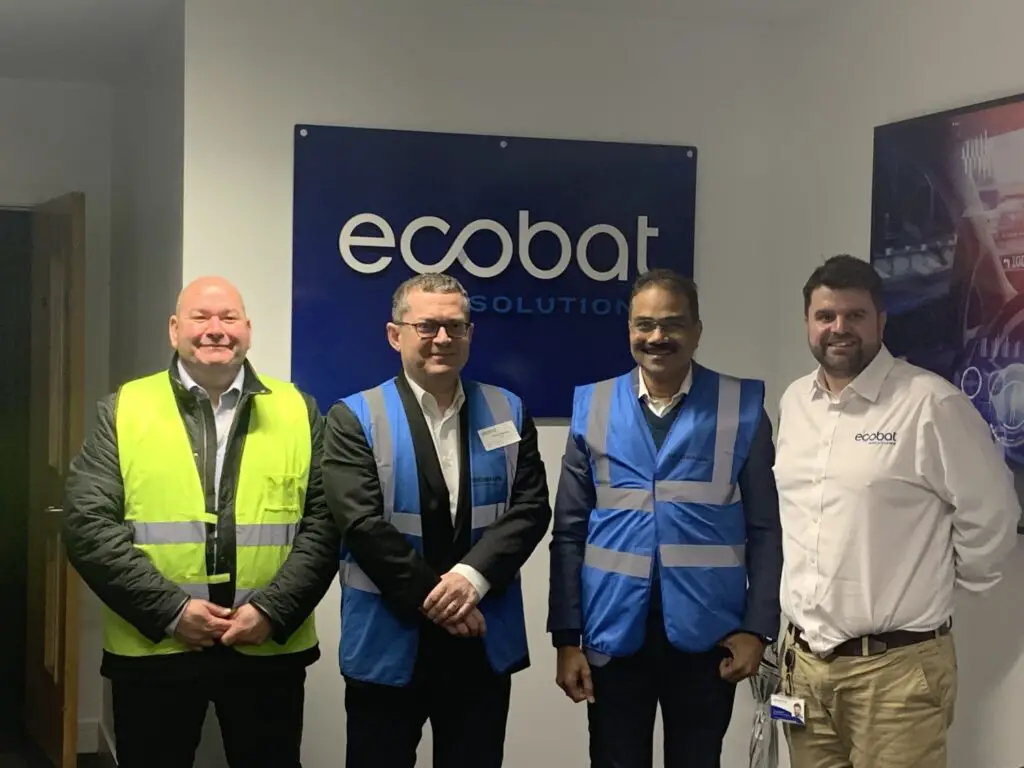Table of Contents
UK Volkswagen Group Fortifies Circular Economy, Prioritises EV Battery Recycling
Electric vehicles (EVs) are reshaping the automotive landscape, and Volkswagen Group UK is trying to lead the way with EV battery recycling. The company understands that as EV adoption accelerates, responsible battery management is crucial. That’s why they’ve strengthened their partnership with Ecobat, a global leader in battery recycling.
A Shared History of Sustainable Battery Management
Volkswagen Group UK and Ecobat have a long-standing relationship dating back to 2014, starting with lead-acid battery recycling for TPS, the Volkswagen Group Genuine Parts provider. Their collaboration expanded in 2019 to include high-voltage battery processing. With the opening of Ecobat’s UK Diagnostics and Disassembly Centre in Darlaston, they’ve successfully processed thousands of batteries.
Ecobat’s Leading Role in EV Battery Recycling
This latest agreement takes things to the next level: Ecobat will collect EV batteries from UK dealerships, distributors, and end-of-life recycling centers using their specialized ADR-compliant vehicles. Batteries will be processed for lithium-ion battery material recycling at Ecobat’s new UK facility – their third global lithium-ion recycling plant alongside those in Germany and Arizona.
Elliott Ethridge, Vice President of Global Sales for Ecobat
“We’re proud to partner with Volkswagen Group UK in driving sustainable EV battery solutions. Our innovative recycling processes make EV technology even more environmentally friendly.”
Volkswagen’s Deep Commitment to Sustainability
Volkswagen’s bold stance on sustainability runs deep. As one of the first carmakers to fully embrace the objectives of the Paris Climate Agreement, they’ve developed a group-wide decarbonization program. The company is committed to e-mobility, launching a massive electrification initiative. Volkswagen aims to have around 50 fully electric models on the market by 2030 – backed by a substantial investment of €180 billion in digitalization and electrification by 2027. Volkswagen Group UK currently offers around 15 electric vehicles with plans for continued expansion. Their efforts have borne fruit; in 2023, the Group was the EV market leader, accounting for over 20% of passenger car EV registrations in the UK.
Sylvain Charbonnier, Director of One Aftersales for Volkswagen Group UK
“Our commitment to sustainability guides our EV journey. Ecobat’s expertise gives our network and our customers peace of mind knowing we’re prioritizing the responsible management of EV batteries.”
Ecobat: Closing the Loop, Minimizing Waste
Ecobat’s approach aligns perfectly with Volkswagen’s environmental goals. Their commitment to recycling all types of batteries aligns with the principles of the circular economy. From responsible transportation to meticulous battery processing, Ecobat sets high standards for environmental safety, adheres to global ISO certifications, and provides Volkswagen Group UK with extended producer responsibility (EPR) compliance. Ecobat’s processes recover valuable materials from EV batteries, boosting sustainability and reducing the need for new mining.

The Future of EV Sustainability
The Volkswagen and Ecobat partnership is a crucial step in the UK’s transition to a greener future. Here’s why it matters:
- Rapid Rise of EVs: The number of EVs on UK roads has skyrocketed in recent years. In 2023 alone, EV sales saw substantial growth, a trend likely to continue exponentially as the EV market matures.
- Critical Resource Recovery: Lithium-ion batteries contain valuable critical minerals. Ecobat’s recycling processes efficiently recover these materials, reducing the need for environmentally intensive mining.
- Reducing Carbon Footprint: Recycling EV batteries significantly reduces the carbon footprint compared to producing batteries with newly mined materials. This directly supports Volkswagen’s ambitious decarbonization goals.
Frequently Asked Questions
Are EV batteries recyclable?
Yes, the vast majority of components in electric vehicle (EV) batteries are recyclable. Companies like Ecobat specialize in safely dismantling EV batteries and recovering valuable materials like lithium, cobalt, and nickel for reuse in new batteries and other applications.
How do you recycle EV batteries in the UK?
Recycling your EV battery in the UK is convenient. Volkswagen Group UK has partnered with Ecobat to offer recycling services. You can typically drop off your end-of-life EV battery at a participating dealership or recycling center. Ecobat will then collect and transport the batteries to their specialized facilities for responsible recycling.
What happens to electric car batteries in a crash?
Automakers like Volkswagen design EVs with robust safety measures to protect the battery pack in the event of a crash. If a battery is damaged, specialized technicians are trained in safely extracting and handling it. Responsible disposal and recycling protocols are then followed.
Are lithium batteries bad for the environment?
The environmental impact of lithium batteries depends on how they are produced and disposed of. Mining the raw materials can have environmental costs. However, recycling lithium batteries significantly reduces their environmental footprint by recovering valuable materials and minimizing the need for new mining.
Is recycling EV batteries worth it?
Yes, recycling EV batteries is absolutely worth it for both environmental and economic reasons. Environmental benefits: Recycling reduces the need to mine new materials, conserves resources, and lowers the carbon footprint associated with battery production.
Economic benefits: Recovering valuable materials like cobalt and lithium makes the recycling process financially viable and helps offset the costs of new battery production.

